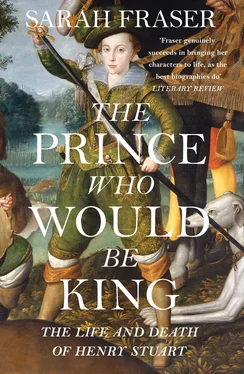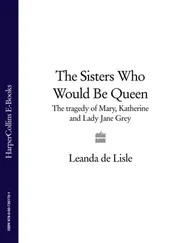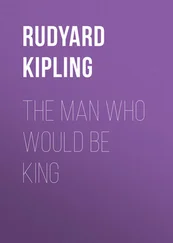Sarah Fraser - The Prince Who Would Be King - The Life and Death of Henry Stuart
Здесь есть возможность читать онлайн «Sarah Fraser - The Prince Who Would Be King - The Life and Death of Henry Stuart» — ознакомительный отрывок электронной книги совершенно бесплатно, а после прочтения отрывка купить полную версию. В некоторых случаях можно слушать аудио, скачать через торрент в формате fb2 и присутствует краткое содержание. Жанр: unrecognised, на английском языке. Описание произведения, (предисловие) а так же отзывы посетителей доступны на портале библиотеки ЛибКат.
- Название:The Prince Who Would Be King: The Life and Death of Henry Stuart
- Автор:
- Жанр:
- Год:неизвестен
- ISBN:нет данных
- Рейтинг книги:3 / 5. Голосов: 1
-
Избранное:Добавить в избранное
- Отзывы:
-
Ваша оценка:
- 60
- 1
- 2
- 3
- 4
- 5
The Prince Who Would Be King: The Life and Death of Henry Stuart: краткое содержание, описание и аннотация
Предлагаем к чтению аннотацию, описание, краткое содержание или предисловие (зависит от того, что написал сам автор книги «The Prince Who Would Be King: The Life and Death of Henry Stuart»). Если вы не нашли необходимую информацию о книге — напишите в комментариях, мы постараемся отыскать её.
NOW THE SUBJECT OF BBC2 DOCUMENTARY The Best King We Never Had
The Prince Who Would Be King: The Life and Death of Henry Stuart — читать онлайн ознакомительный отрывок
Ниже представлен текст книги, разбитый по страницам. Система сохранения места последней прочитанной страницы, позволяет с удобством читать онлайн бесплатно книгу «The Prince Who Would Be King: The Life and Death of Henry Stuart», без необходимости каждый раз заново искать на чём Вы остановились. Поставьте закладку, и сможете в любой момент перейти на страницу, на которой закончили чтение.
Интервал:
Закладка:
From the other side of the religious divide, the crypto-Catholic Howards, led by the earls of Suffolk and Northampton, generated a connection to Nonsuch through boys like Rowland Cotton, now admitted to serve Henry. Rowland’s father, Sir Robert Cotton, MP and the most eminent antiquary in England, was Northampton’s friend and client.
The other high-placed Howard, Lord High Admiral Nottingham, had no children to place around Henry. Instead he commissioned a model ship, twenty-five feet long, as a gift. He told shipwright Phineas Pett to sail it up to Limehouse and anchor it ‘right against the King’s lodgings’. After lunch on Thursday, 22 March 1604, Nottingham led Henry and his friends on board. Pett ordered the little ship to weigh anchor, ‘under both topsails and foresail’, and they sailed downriver as far as St Paul’s Wharf.
It was love at first sight. The speed and power of a ship moving under him, and the freedom out on the water, thrilled Henry. He took a great silver bowl of wine in his hands, named his first ship the Disdain (how fighting men and ships reacted to danger) and drank to her. All his young friends drank after him. Then Henry walked over to the side of the vessel, leaned out and poured the rest of the wine into the Thames as a libation, tossing the bowl in after it.
Northampton lavished flattery on Henry, as he did the king. The prince was a Renaissance prodigy, he said, matching ‘Mercury with Diana … study with exercise’.
TEN
Henry’s Day
‘THE EDUCATION OF A CHRISTIAN PRINCE’
At Nonsuch, Adam Newton and his team of tutors continued the curriculum begun at Stirling, scholars and schoolboys sitting below Holbein’s portrait of Erasmus Writing . Henry’s Latin grammar book contained the Creed, the Ten Commandments, the Lord’s Prayer, and Erasmus’s Christiani hominis institutum (‘A Christian man’s practice’). Anthologies of the masters of grammar and rhetoric included Plautus, Cicero, Sallust, Horace, Demosthenes, Seneca, Virgil, and Tacitus. By the age of ten, Henry could tell his father he had been reading ‘Terence’s Hecyra , the third book of Phaedrus’ Fables and two books of the selected Epistles of Cicero’. Unlike James, Henry did not seem to have read Greek texts in the original, but in Latin translations. Since every royal male had to be articulate and literate in Latin, it was an easier way to tackle Greek writers.
Henry thanked his mother in French for a copy of Guy de Faur’s Quatrains , poems on how to wield power and do so morally. Based on a Latin original, Henry’s poet, Sylvester, translated them from French into English. Henry translated them back into Latin, saying they ‘deserved to be imprinted in the minds of men’. Perfectly pitched for the black-and-white morality of a ten-year-old mind, the poems clearly impressed him. A ‘good part’ of them, he told the king, was ‘most powerfully written for the education of princes’. Maybe no scholar, he was no dunce.
Henry, however, never showed his father’s great and deep love of learning. One of James’s tutors, Peter Young, said James at about this age cleansed his thoughts first thing in the morning, by asking God’s blessing on his studies. Then, before anything to eat and drink, he read the Bible in Greek, or Isocrates, and learned Greek grammar. After breakfast he turned to Latin: Livy, Justin, Cicero, or Scottish histories. After dinner, he practised compositions. The remainder of the afternoon he gave over to arithmetic, cosmography (which included geography and astronomy), dialectics and rhetoric. In adolescence, the king knew by heart much of the Bible and reams of classical verse. As James I he was one of the few contemporary writers of European renown, thanks to books such as Basilikon Doron , recognised as a major contribution to the hot European debate over the nature and root of sovereignty.
At Nonsuch, after morning prayers, Henry studied for only about two hours at his desk, before leading his friends outdoors. He passed as much of the day as he could ‘hawking, hunting, running at the ring, leaping, riding of great horses, dancing, fencing, tossing of the pike, etc. In all which he did so far excel as was fitting for so great a Prince … he would many times tire all his followers before he himself would be weary.’ The Venetian ambassador thought the prince attended to his books ‘chiefly under his father’s spur, not of his own desire’. One day, Henry and his friends used up so many cannon balls and gunpowder they were told to stop. That practical part of his education the prince would have worked at ceaselessly, but the household could not afford it.
If Henry and his father did not share academic interests, outside the schoolroom they attended sermons, discussing them afterwards, shared official duties and hunted together. ‘Since he was but two years old,’ the prince ‘knew and respected the King his father above all others … Yea, his affection to his Majesty did grow with his age,’ wrote one of the king’s court. When James fell from his horse, Henry was said to have thrown himself off his pony and rushed to him in distress.
Visiting Henry in Lumley’s fabulous library, James asked his son what was his favourite verse, from any book he was studying? Unhesitating, Henry took the Aeneid , found his page, read the Latin, and then translated: ‘We had a king, Aeneas called, a juster was there none/In virtue, or in feats of war, or arms, could match him one.’ Aeneas was one of the legendary founders of Rome. Had James come to found a new Rome in London? Henry complimented his father with qualities the boy deemed attractive – piety, justice, martial excellence, civic responsibility and valour in arms to build the new Rome.
Adam Newton, curious to know how Henry felt and saw the world, asked him to choose a sentence he really liked out of the hundreds the tutor gathered as teaching materials. Henry flipped through until he found Silius Italicus: ‘Renown is a furtherer of an honest mind’. Elsewhere translated as ‘Glory is the torch of the upright mind’, Henry adopted it as one of his mottoes. It could not be more different from the king’s: ‘Blessed are the peacemakers’.
‘Thou doest thy father’s forces lead,/and art the hand, while he is the head,’ David Murray’s poet friend, Sir William Alexander, concluded after seeing Henry. You shall ‘shine in valour as the morning star’. It filled old soldiers like Alexander with joy ‘to see thee young, yet manage so thine arms’. Whatever Northampton might have claimed about the prince matching ‘study with exercise’, others saw that Henry acted as if he honed his virtue more by feats of arms than philosophy.
Although he did ‘have Minerva’s mind’ as well as ‘Bellona’s hands’, Henry more often honoured the goddess of war than intellect.
Henry’s expanded role in public life required his household to remove to London every so often, leading James to give over St James’s Palace to his son. The king ordered new stables and barns to be built for Henry’s official Westminster residence. No official residence was available for Prince Charles when he arrived in the summer of 1604, and Henry gave up his lodgings at Whitehall for his delicate young brother, though Charles often came to stay with Henry for long periods. The king did his best to give his children what he had missed: a secure family life.
‘Sweet, sweet brother, I thank you for your letter … I will send my pistols by Mr Newton,’ Charles told Henry when they were apart. ‘I will give anything that I have to you: both my horse, and my books, and my pieces, and my cross bows, or anything that you would have. Good brother, love me, and I shall ever love and serve you, Your loving brother to be commanded, York.’ He seemed to adore his brother. Their tone swung from formality – when Charles was ‘York’ – to the emotional declaration: ‘I will give anything I have to you’, only, ‘Good brother, love me’. Henry must have loved both his siblings to elicit this kind of response.
Читать дальшеИнтервал:
Закладка:
Похожие книги на «The Prince Who Would Be King: The Life and Death of Henry Stuart»
Представляем Вашему вниманию похожие книги на «The Prince Who Would Be King: The Life and Death of Henry Stuart» списком для выбора. Мы отобрали схожую по названию и смыслу литературу в надежде предоставить читателям больше вариантов отыскать новые, интересные, ещё непрочитанные произведения.
Обсуждение, отзывы о книге «The Prince Who Would Be King: The Life and Death of Henry Stuart» и просто собственные мнения читателей. Оставьте ваши комментарии, напишите, что Вы думаете о произведении, его смысле или главных героях. Укажите что конкретно понравилось, а что нет, и почему Вы так считаете.












